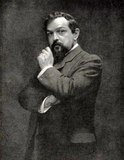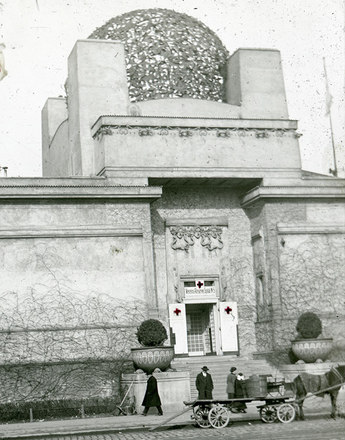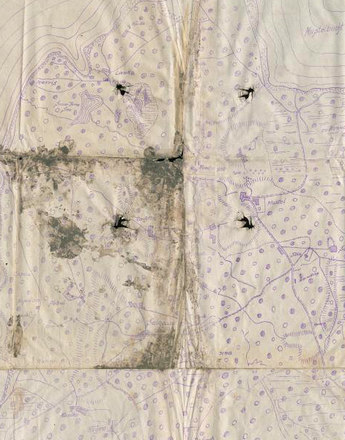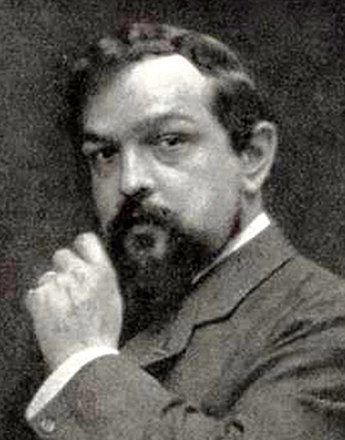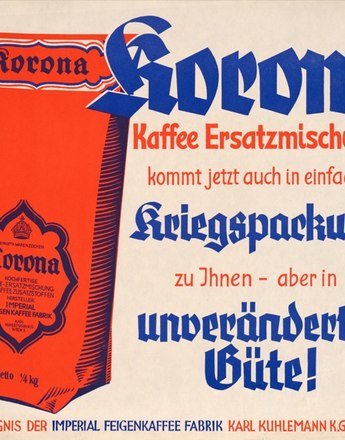Star Composers and the Great War
Almost all those composers from the countries fighting in the war who had already become very well-known before the war adopted a nationalistic pro-war stance. For some, however, the war years meant a sharp drop in their creativity. The death of many friends and acquaintances and in some cases their own experiences at the front led to the rapid disappearance of their initial enthusiasm. The music composed during the war is thus almost always marked by the mood of the war.
For Edward Elgar the war represented a turning-point. His patriotic stance led him to volunteer for a special police unit as soon as the war began. Even as the composer of the Pomp and Circumstance marches he could not match the great successes he had had in the past. Since his works were no longer performed in Austria and Germany, where he had previously had many supporters, his popularity quickly declined. His romantic music had fallen out of fashion, while his patriotic wartime compositions remained on the whole insignificant. In 1915 he began work on a requiem for the fallen (The Spirit of England), which he completed in 1917, completely disillusioned after the bloodshed of the trench warfare around Verdun. A short time later he noted in a letter:
Two years ago I held over a section hoping that some trace of manly spirit would show itself in the direction of German affairs; that hope is gone forever & the Hun is branded as less than a beast for very many generations.
His last major orchestral work, the Cello Concerto in E minor (1919), a piece full of tragedy, resignation and a valedictory mood, is seen as an expression of Elgar’s state of mind.
John Foulds (1880–1939), an Englishman who ranked as one of the most innovative composers of his time, has left us A World Requiem, which is based on Christian and Hindu texts. Unlike Elgar’s work, this piece transcends the national element and is conceived as a requiem in memory of the fallen of all nations.
The French composer Maurice Ravel (1875–1937) also volunteered for war service, but at first was turned down because he was underweight – by just two kilos, as he noted with disappointment. In 1915 he succeeded in being hired as a lorry driver, but had to break off his wartime adventure just a year later because he fell ill. However, he did not join the patriotic ‘National League for the Defence of French Music’ (Ligue nationale de la défense de la musique française),which was supported by eighty French musicians. He did not want to support such national cliquishness and the ban on performances of music by German and Austrian composers: ‘Il m’importe peu que M. Schönberg, par exemple, soit de nationalité autrichienne. Il n’en est pas moins un musicien de haute valeur.‘ (It does not matter much to me that Mr Schönberg, for example, is Austrian by nationality. That does make him any less of a musician of great merit.) During the war Ravel created in stages Le Tombeau de Couperin, his work in memory of the Baroque composer François Couperin. However, the wartime situation gave it a different meaning from that originally intended: each of the six movements is dedicated to a friend of his who had fallen in the war.
Claude Debussy also adopted a highly nationalist stance in the First World War. He composed some patriotic works, including three sonatas which were intended to recall the French baroque style in deliberate contrast to the German musical tradition and which he signed ‘Claude Debussy, musicien français’. In 1915 he wrote the words and music of Noël des Enfants qui n'ont plus de maisons (Christmas of the children who no longer have a home):
Nous n'avons plus de maisons!
Les ennemis ont tout pris, tout pris, tout pris,
Jusqu'à notre petit lit! (...)
Noël, petit Noël, n'allez pas chez eux,
N'allez plus jamais chez eux, punissez-les!
Vengez les enfants de France!
Les petits Belges, les petits Serbes, et le petits Polonais aussi!
(We no longer have a home!
The enemies have taken everything, taken everything, taken everything,
Even our little bed!
Jesus! Little Jesus child! Do not go to them,
Do not go to them ever again, punish them!
Avenge the children of France!
The little Belgians, the little Serbs, and the little Poles too!)
In 1909 Debussy fell ill with stomach cancer, and an operation in 1915 could only delay his death. After three painful years he died in March 1918.
Translation: Leigh Bailey
Foreman, Lewis (Hrsg.): Oh My Horses! Elgar and the Great War, Rickmansworth 2001
La Grande Guerre de Maurice Ravel. Unter: http://www.verdun-meuse.fr/index.php?qs=fr/ressources/la-grande-guerre-d... (20.06.2014)
Scheyt, Jochen: Claude Debussy. Der 1. Weltkrieg. Unter: http://www.jochenscheytt.de/debussy/debussyallg/weltkrieg.html (20.06.2014)
Schlüren, Christoph: John Foulds, 1996. Unter: http://www.musikmph.de/rare_music/composers/f_l/foulds_john/1.html (20.06.2014)
Quotes:
„Two years ago I held ...": Michael Kennedy im Beiheft zur Aufnahme „The Spirit of England“ LSO/Hickox, EMI 1988, 3 (Translation)
„Il m’importe peu (It does not matter) ...": Unter: http://www.verdun-meuse.fr/index.php?qs=fr/ressources/la-grande-guerre-d... (20.06.2014) (Translation)
-
Chapters
- ‘Long jackets instead of Tailcoats’ – The Music Business in Times of Austerity
- Arousing Patriotic Sentiments in the Concert of Nations
- ‘In War the Muses Learn How to Serve’
- Serious Times – Serious Art
- ‘I’d like to dance, I’d like to shout for joy’ – Popular Music in the First World War
- ‘German Musical Life and How to Delouse It’ – Music for Use in the War
- ‘What the soldier in battle dress is singing now will be sung by the entire German people in rare unity.’ – Soldiers’ Songs as Collectors’ Items
- ‘It’s Hugo’s damned duty not to die for the fatherland before I’ve got my Act III.’ – Richard Strauss and the First World War
- Militarism and Terror Set to Music
- ‘La Victoire en chantant’ – The French chanson in the First World War
- Musical Innovations in the First World War
- Composers’ Fates: War, Death and the Longing for Peace and Overcoming Memories
- Star Composers and the Great War


